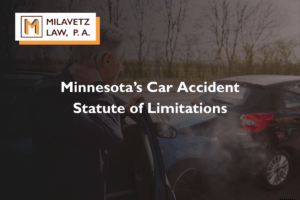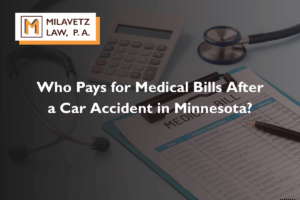In the aftermath of a traffic accident, it’s easy to focus on the physical injuries. They’re often obvious to onlookers: the bandages, crutches and perhaps confinement to a wheelchair. But what about the injuries you can’t see – the ones that affect the mind as well as the body?
Increasing evidence shows that the psychological toll of motor vehicle accidents can be just as significant as purely physical injuries. Yet, because those effects are more difficult to pinpoint than a broken leg or herniated disk, they often get overlooked. And they’re far more prevalent than most people realize.
The vast majority of accident victims suffer from psychological effects
According to one study, by 11 weeks after a serious motor vehicle accident, an astonishing 58 percent of victims had been diagnosed with major depressive disorder. The same study found that 21 percent had a diagnosis of post-traumatic stress disorder (PTSD), and many were suffering from both depression and PTSD.
These disorders have a far-reaching impact, affecting the victim’s relationships, social interactions, ability to return to work and overall quality of life. They can lead to burdensome symptoms such as:
- Insomnia
- Chronic fatigue
- Weight loss or gain
- Problems concentrating
- Irritability and agitation
- Intrusive flashbacks
- Lack of interest and enjoyment in life
- Suicidal ideation
What contributes to accident-related psychological disorders?
Several factors play a role in the increased prevalence of post-accident mental health issues. For example, depression and PTSD are more likely when the victim is:
- Facing a lifetime of disability
- Coping with chronic pain
- Struggling with financial problems
- Suffering from whiplash, traumatic brain injuries, or spinal cord injuries (all of which can cause significant neurological impairments)
- Dealing with the stress of the legal claims process
PTSD specifically is more prevalent when victims perceive they had a close brush with death in the accident.
Looking toward a brighter future
Awareness is the first step in addressing these invisible injuries. If you’ve been involved in a car accident, there is no shame in seeking a psychological evaluation, just as you’ve sought a medical one. Early intervention and treatment – whether through medication, therapy or both – can vastly improve your prognosis and create a better quality of life.
If you’re dealing with the legal aftermath of the accident, that alone is another significant stressor. The claims process itself can aggravate the psychological toll. Research shows that victims suffering from psychological effects post-accident tend to have greater financial burdens, more complicated injury claims and heightened delays in getting compensation.
Working with an attorney who understands these issues – and who can take the stress of the legal matters off your hands – can free you up to focus on healing and recovery, both physically and emotionally.
















